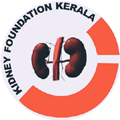Chandra Sekharan Gokulam…tells un on what steps to be taken to keep kidneys healthy.
𝕂𝕖𝕖𝕡 𝕪𝕠𝕦𝕣 𝕜𝕚𝕕𝕟𝕖𝕪𝕤 𝕙𝕖𝕒𝕝𝕥𝕙𝕪……
8 Ways to Keep Your Kidneys Healthy
(1)Stay active
(2)Control blood sugar
(3)Monitor blood pressure
(4)Monitor weight and diet
(5)Stay hydrated
(6)Stop smoking
(7)Monitor OTC pill intake
(8)𝕋est your kidneys
Your kidneys are fist-sized organs located at the bottom of your rib cage, on both sides of your spine. They perform several functions.
Most importantly, they filter waste products, excess water, and other impurities from your blood. These waste products are stored in your bladder and later expelled through urine.
In addition, your kidneys regulate pH, salt, and potassium levels in your body. They also produce hormones that regulate blood pressure and control the production of red blood cells.
Your kidneys are also responsible for activating a form of vitamin D that helps your body absorb calcium for building bones and regulating muscle function.
Maintaining kidney health is important to your overall health and general well-being. By keeping your kidneys healthy, your body will filter and expel waste properly and produce hormones to help your body function properly.
Here are some tips to help keep your kidneys healthy.
1. Keep active and fit
Regular exercise is good for more than just your waistline. It can lower the risk of chronic kidney disease. It can also reduce your blood pressure and boost your heart health, which are both important to preventing kidney damage.
You don’t have to run marathons to reap the reward of exercise. Walking, running, cycling, and even dancing are great for your health. Find an activity that keeps you busy and have fun. It’ll be easier to stick to it and have great results.
2. Control your blood sugar
People with diabetes, or a condition that causes high blood sugar, may develop kidney damage. When your body’s cells can’t use the glucose (sugar) in your blood, your kidneys are forced to work extra hard to filter your blood. Over years of exertion, this can lead to life-threatening damage.
However, if you can control your blood sugar, you reduce the risk of damage. Also, if the damage is caught early, your doctor can take steps to reduce or prevent additional damage.
3. Monitor blood pressure
High blood pressure can cause kidney damage. If high blood pressure occurs with other health issues like diabetes, heart disease, or high cholesterol, the impact on your body can be significant.
A healthy blood pressure reading is 120/80. Prehypertension is between that point and 139/89. Lifestyle and dietary changes may help lower your blood pressure at this point.
If your blood pressure readings are consistently above 140/90, you may have high blood pressure. You should talk with your doctor about monitoring your blood pressure regularly, making changes to your lifestyle, and possibly taking medication.
4. Monitor weight and eat a healthy diet
People who are overweight or obese are at risk for a number of health conditions that can damage the kidneys. These include diabetes, heart disease, and kidney disease.
A healthy diet that’s low in sodium, processed meats, and other kidney-damaging foods may help reduce the risk of kidney damage. Focus on eating fresh ingredients that are naturally low-sodium, such as cauliflower, blueberries, fish, whole grains, and more.
5. Drink plenty of fluids
There’s no magic behind the cliché advice to drink eight glasses of water a day, but it’s a good goal precisely because it encourages you to stay hydrated. Regular, consistent water intake is healthy for your kidneys.
Water helps clear sodium and toxins from your kidneys. It also lowers your risk of chronic kidney disease.
Aim for at least 1.5 to 2 liters in a day. Exactly how much water you need depends largely on your health and lifestyle. Factors like climate, exercise, gender, overall health, and whether or not you’re pregnant or breastfeeding are important to consider when planning your daily water intake.
People who have previously had kidney stones should drink a bit more water to help prevent stone deposits in the future.
6. Don’t smoke
Smoking damages your body’s blood vessels. This leads to slower blood flow throughout your body and to your kidneys.
Smoking also puts your kidneys at an increased risk for cancer. If you stop smoking, your risk will drop. However, it’ll take many years to return to the risk level of a person who’s never smoked.
7. Be aware of the amount of OTC pills you take
If you regularly take over-the-counter (OTC) pain medication, you may be causing kidney damage. Nonsteroidal anti-inflammatory drugs (NSAIDs), including ibuprofen and naproxen, can damage your kidneys if you take them regularly for chronic pain, headaches, or arthritis.
People with no kidney issues who take the medicine occasionally are likely in the clear. However, if you use these medicines daily, you could be risking your kidneys’ health. Talk with your doctor about kidney-safe treatments if you’re coping with pain.
8. Have your kidney function tested if you’re at high risk
If you’re at high risk of kidney damage or kidney disease, it’s a good idea to have regular kidney function tests. The following people may benefit from regular screening:
people who are over 60 years old
people who were born at a low birth weight
people who have cardiovascular disease or have family with it
people who have or have a family history of high blood pressure
people who are obese
people who believe they may have kidney damage
A regular kidney function test is a great way to know your kidney’s health and to check for possible changes. Getting ahead of any damage can help slow or prevent future damage.


